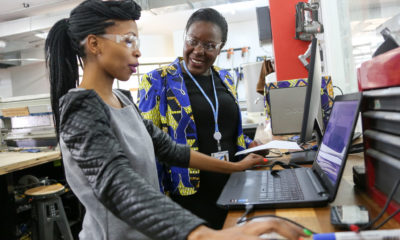In this week’s news roundup, you will read about South Africa’s new clause on its advertising code targeted towards the cryptocurrency sector and more.
South Africa Introduces New Cryptocurrency Standards to Advertising Code
The South African Advertising Regulatory Board (ARB) has introduced a new clause targeted at the crypto industry and aimed at protecting consumers from unethical advertising.
According to the new clause introduced to Section III of the country’s advertising code, both companies and individuals in South Africa will be required to abide by certain advertising standards in relation to the provision of crypto products and services. The first clause makes it mandatory for adverts, including crypto offerings, to clearly express that crypto investments may result in the loss of capital given the volatile nature of cryptocurrencies. In addition, crypto adverts should not contradict warnings about potential investment losses that investors may face.
The clause also went ahead to emphasize that adverts for particular services and products must be explained in an easily understandable manner for the target audience. Advertisements must also have balanced messages around benefits, features, returns, and risks associated with the particular service or product.
Rates of returns, projections, or any kind of forecasts must also be sufficiently substantiated, including how they are calculated and what conditions apply to touted returns. Moreover, any information relating to a crypto product or service’s past performance will not be used to promise future performance or returns, and should, therefore, not be presented in a way that creates ‘a favourable impression of the advertised product or service.’
The clause went on to state that adverts from crypto service providers who aren’t registered credit providers should not push for the acquisition of digital currencies using credit. However, this does not prevent the advertising of associated payment methods provided by crypto service providers. In the same breadth, brand ambassadors and social media influencers will also be expected to comply with certain advertising standards, such as sharing factual information and not offering advice on investing or trading in crypto assets as well as the prohibition of promises of benefits or returns.
Central African Republic Keen on a Legal Framework for Cryptocurrency Adoption
 Central African Republic (CAR) has set up a 15-member committee that will be responsible for developing a bill on the use of cryptocurrencies and tokenization in the region.
Central African Republic (CAR) has set up a 15-member committee that will be responsible for developing a bill on the use of cryptocurrencies and tokenization in the region.
Once developed, the legal framework will enable cryptocurrencies to operate in the Central African Republic and expedite the development of the country’s economy. CAR’s President, Faustin-Archange Touadéra, believes that digital currencies will help eliminate the country’s financial barriers and build a business-friendly environment that’s supported by a legal framework for crypto usage in the country.
He went on to say, “With access to cryptocurrencies, the monetary barriers existing until now will disappear, the main objective of the measures adopted by the government being the development of the national economy.”
The committee tasked with drafting the crypto bill comprises 15 experts from five different ministries of CAR, including the Ministry of Mines and Geology, the Ministry of Waters, Forest, Hunting and Fishing, the Ministry of Agriculture ad Rural Development, the Ministry of Town Planning, Land Reform, Towns and Housing and Ministry of Justice, Promotion of Human Rights and Good Governance.
To learn more about Bitcoin, download the Bitcoin Beginner’s Handbook for free.


 News1 year ago
News1 year ago
 News1 year ago
News1 year ago
 News2 years ago
News2 years ago
 News2 years ago
News2 years ago
 News2 years ago
News2 years ago
 Sponsored Posts2 years ago
Sponsored Posts2 years ago
 News2 years ago
News2 years ago
 News2 years ago
News2 years ago
















 Central African Republic (CAR) has set up a 15-member committee that will be responsible for developing a bill on the use of cryptocurrencies and tokenization in the region.
Central African Republic (CAR) has set up a 15-member committee that will be responsible for developing a bill on the use of cryptocurrencies and tokenization in the region.





